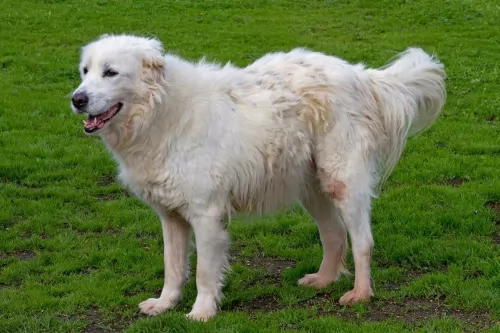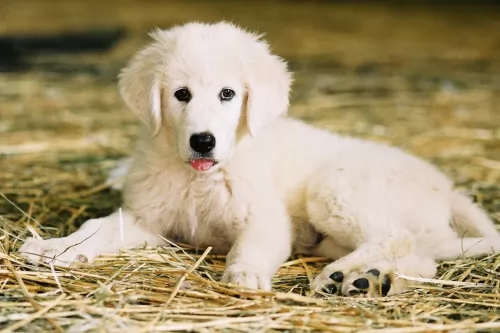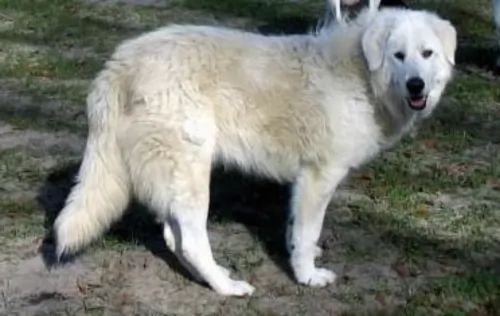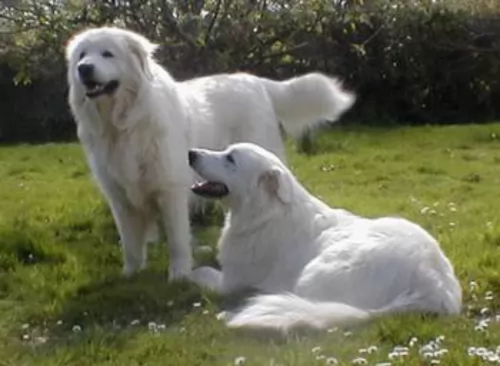 Petzlover
Petzlover Abruzzenhund is originated from Italy but Norwich Terrier is originated from United Kingdom. Abruzzenhund may grow 48 cm / 19 inches higher than Norwich Terrier. Abruzzenhund may weigh 39 kg / 86 pounds more than Norwich Terrier. Both Abruzzenhund and Norwich Terrier has same life span. Abruzzenhund may have more litter size than Norwich Terrier. Both Abruzzenhund and Norwich Terrier requires Moderate Maintenance.
Abruzzenhund is originated from Italy but Norwich Terrier is originated from United Kingdom. Abruzzenhund may grow 48 cm / 19 inches higher than Norwich Terrier. Abruzzenhund may weigh 39 kg / 86 pounds more than Norwich Terrier. Both Abruzzenhund and Norwich Terrier has same life span. Abruzzenhund may have more litter size than Norwich Terrier. Both Abruzzenhund and Norwich Terrier requires Moderate Maintenance.
 Abruzzenhund was established as an individual breed in the middle of the 20th century. They are descendant of the big, white Eastern sheepdogs which came to Europe 2000 years ago. Abruzzenhund is a mix of Turkish sheepdogs Akbash and Karabash, the Kuvac, Slovakian breed Hungarian breed, Komondor, and a French sheepdog Pyrenean Mountain Dog. Those dogs were much bigger than today’s breed. Abruzzenhund is still not very popular breed, but it is very common in Great Britain and Italy. They have been used as guard dogs, hunting dogs, and working dogs because they are very brave and strong.
Abruzzenhund was established as an individual breed in the middle of the 20th century. They are descendant of the big, white Eastern sheepdogs which came to Europe 2000 years ago. Abruzzenhund is a mix of Turkish sheepdogs Akbash and Karabash, the Kuvac, Slovakian breed Hungarian breed, Komondor, and a French sheepdog Pyrenean Mountain Dog. Those dogs were much bigger than today’s breed. Abruzzenhund is still not very popular breed, but it is very common in Great Britain and Italy. They have been used as guard dogs, hunting dogs, and working dogs because they are very brave and strong.
 Hailing from the United Kingdom and once known as the Cantab Terrier, the Norwich Terrier may be small, but he was bred to hunt rodents.
Hailing from the United Kingdom and once known as the Cantab Terrier, the Norwich Terrier may be small, but he was bred to hunt rodents.
Closely related to the Norfolk Terrier, he is an old dog breed, having existed since the 19th century. Its understandable that such a dog would also be the mascot of Cambridge students.
It is believed that he was bred from Irish Terriers and some believe it came from the Trumpington Terrier, an extinct breed.
 A height of Abruzzenhund variates between 60-73 cm, males are slightly bigger than females. While the weight is 30-45kg, again, males are heavier than females.
A height of Abruzzenhund variates between 60-73 cm, males are slightly bigger than females. While the weight is 30-45kg, again, males are heavier than females.
Abruzzenhund lifespan is between 11-13 years, but since these dogs don’t have any weaknesses and don’t tend to get sick, they can live longer with a proper care and adequate food and training.
Litter size of Abruzzenhund depends, but as any large breed, they usually have 6-9 puppies. And that is a very good considering size of the breed.
Abruzzenhund is not the only name of this breed. There are more names that you might hear. You can hear names like Maremma, Pastore, Abruzzese, Cane da Pastore, Maremmano- Abruzzese, Italian Sheepdog, and many similar names. Basically, they sound similar but there are differences.
Abruzzenhund is a friendly dog, but it is very powerful. Very strong jaw with a scissors bite makes them very strong. They have small but intelligent eyes, usually dark colored. The undercoat is dense, while the coat is white with segments of ivory to white yellow. Their long undercoat and coat make them winter resistant.
 As one of the smallest terriers, the Norwich Terrier is also quite a rare dog breed. He is such a cute little dog this, weighing just 5 to 5.5kg and standing at between 23–25cm at the withers.
As one of the smallest terriers, the Norwich Terrier is also quite a rare dog breed. He is such a cute little dog this, weighing just 5 to 5.5kg and standing at between 23–25cm at the withers.
He has erect ears and a double coat that can be wheaten, red, tan, black and tan and grizzle. The tail has always been docked previously, giving the dog an attractive, compact look but these days it is left long. These dogs have small litters – usually between one and three puppies.
The Norwich Terrier is a friendly little dog and is essentially a companion to humans. Just because he is small, doesn’t mean he is frail and helpless. He is a feisty, hardy dog with a brave heart and just loves his human family.
The Norwich Terrier is also strong willed and assertive and it can be of benefit to have him trained and socialized. He is energetic too, so he’ll expect a walk each day, a run in the park and ball games. They also make excellent little watchdogs, at least warning you of approaching strangers.
They are good with kids if the children have been taught to be kind and gentle with animals, and they get on well with other pets in the home too.
 Abruzzenhund is a very well-balanced breed who loves spending time with other animals and people. They have a very good temper. They love being around families, and they are very gentle with children. It is important to train Abruzzenhund properly because the dog of that size should be a leader. A human with a strong character should train this breed. Training is important because they tend to make their own decisions which can be bad sometimes.
Abruzzenhund is a very well-balanced breed who loves spending time with other animals and people. They have a very good temper. They love being around families, and they are very gentle with children. It is important to train Abruzzenhund properly because the dog of that size should be a leader. A human with a strong character should train this breed. Training is important because they tend to make their own decisions which can be bad sometimes.
 The Norwich Terrier is guaranteed to make you a splendid pet as he is active, friendly, social and intelligent, as well as being loving and loyal.
The Norwich Terrier is guaranteed to make you a splendid pet as he is active, friendly, social and intelligent, as well as being loving and loyal.
You can rely on this little canine friend to want to be with you and take part in all your activities. He won’t do well if you put him in the back yard and forget about him, as he craves human company.
When you do whatever it takes to ensure your Norwich Terrier is an active and treasured member of your family, you’ll be rewarded with a wonderful pet and companion for many years.
 The lifespan of the Norwich Terrier is between 11 and 13 years and he is considered a healthy breed. Every dog owner needs to know that there are some health issues which will require veterinary intervention.
The lifespan of the Norwich Terrier is between 11 and 13 years and he is considered a healthy breed. Every dog owner needs to know that there are some health issues which will require veterinary intervention.
Cataracts, an eye disease may be inherited and it is where the eye gets a cloudy look. Other illnesses to look out for include Patellar Luxation, a problem where the dog's kneecap is dislocated from its normal anatomic position. The condition is fairly common in small dog breeds.
Check problems with the teeth - more specifically incorrect bites because of how the teeth meet.
Sometimes these dogs can battle with breathing problems. Upper Airway Syndrome is when the dogs breathing is raspy.
 They learn very quickly, but it requires strong will and constant training to keep them happy. They are great working dogs, and with the positive training, they are amazing. It is very important that they follow rules and to keep them in balance with training.
They learn very quickly, but it requires strong will and constant training to keep them happy. They are great working dogs, and with the positive training, they are amazing. It is very important that they follow rules and to keep them in balance with training.
They can eat a lot of food, depend on their activity. High-Quality dog food twice a day for a grown dog is a must. While puppies should eat 3-5 times, smaller portions of food. The food is important especially for working dogs, they need up to 2000-3000Kcal per day. Abruzzenhund will enjoy eating meat with a lot of vegetables and oil.
They are not recommended for small house or apartment. They need big yard because they require a lot of space. During the winter they can be outside because of their coat, but during the summer they need to be in the shade with a lot of fresh water available anytime.
The coat should be brushed and groomed very often because they have a thick coat. There is a lot of dead and loose hair in it. During shedding, period takes even more time to groom your dog properly. They love and they need exercise. Mental exercise is important as physical. Every day walking, running, playing with other animals is an important part of dog's activity. When they get enough quality exercise, they will sleep in the house.
 Norwich Terriers are active little dogs and were bred to be working dogs – hunting vermin but also accompanying their owners on horseback. You can see that he has been used to an active lifestyle and will require a daily walk and games. He will also want toys which can keep him occupied in between his active sessions.
Norwich Terriers are active little dogs and were bred to be working dogs – hunting vermin but also accompanying their owners on horseback. You can see that he has been used to an active lifestyle and will require a daily walk and games. He will also want toys which can keep him occupied in between his active sessions.
His size allows him to adapt easily to life in the city or the countryside but wherever he is, he will need a good dose of exercise.
The double coated Norwich Terrier, with his wiry topcoat and soft undercoat will need to be brushed twice a week to avoid matting. This is a dog that will require stripping of the old hairs from the coat. This is a process which ensures the coat retaining its texture and appearance.
If you’re in any kind of doubt, speak to a professional groomer. As it is, many owners of this dog who don’t show their dogs, have them professionally groomed.
Always choose a high-quality dry food. Try and avoid those commercially manufactured foods which contain wheat and gluten and lots of preservatives and colorants. These can affect your pet’s health negatively.
Choose quality foods where protein is at the top of the list of ingredients. Give your pet some homemade food too, keeping his diet as simple and nutritious as possible. Some boiled chicken chopped up together with brown rice or pasta and some cooked vegetables such as carrots, sweet potatoes and spinach will do him the world of good.
A tiny bit of raw meat every once and again will be a good thing. Avoid foods such as chocolates, ice-cream, popcorn, onions and spicy foods as these will upset your pet’s digestive system.
Provide him with a warm, dry, soft bed. If he is outside for any length of time, make sure he has a sheltered area away from the sun and rain.